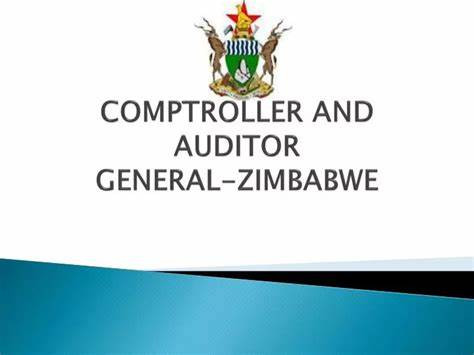
BELOW are selected excerpts from an advocacy brief prepared to inform and influence discussions during the next International Monetary Fund (IMF) Article IV Consultation with Zimbabwe to be held next month: The brief highlights key concerns, recommendations, and priority areas raised by civil society and economic analysts, aimed at promoting inclusive, transparent, and sustainable economic reforms.
Introduction
Zimbabwe’s economy is in a perilous state, characterised by currency instability, rampant arbitrage in foreign exchange markets, and systemic corruption undermining public finances.
Despite repeated reform attempts, the situation has deteriorated, eroding public trust and exacerbating economic hardship.
This brief highlights key problem areas — including the failed introduction of a new gold-backed currency, abuse of the foreign currency auction system by politically-connected elites, egregious corruption in public tenders, and the lack of accountability for public finance mismanagement — and offers recommendations.
The aim is to inform the IMF’s Article IV consultation with an unvarnished account of these issues and advocate for decisive reforms and oversight to restore stability and credibility.
Recommendations
Addressing Zimbabwe’s economic crisis requires tackling its governance and transparency deficits head-on.
- Village Rhapsody: How Zimbabwe can improve governance
- Village Rhapsody: Engage men to end gender-based violence
- Village Rhapsody: How Zimbabwe can improve governance
- Zim maize output to drops by 43%
Keep Reading
We respectfully urge the IMF, as part of its Article IV consultation and any programme discussions, to press for the following key reforms and oversight mechanisms:
Independent forensic audits
There is need to commission independent audits (with international reputable firms) of suspect transactions and entities — starting with the Zimbabwe Electoral Commission (Zec) procurement deals and the Reserve Bank of Zimbabwe’s foreign currency auctions. A forensic audit of the Zec tender should trace the full money trail and identify all officials involved in approving and facilitating that overpayment.
Strengthen IMF
We recommend that any IMF re-engagement (Staff-Monitored Programme or funded programme) include stringent oversight provisions.
For example, the IMF could insist on the appointment of external monitors/advisors embedded in the Ministry of Finance and RBZ to supervise high-risk transactions.
International best practice in post-crisis environments (e.g. in certain European Union programmes or African post-conflict financial management regimes) has included foreign or independent experts co-signing on large expenditures to ensure compliance.
A similar external supervision mechanism for Zimbabwe’s Treasury — perhaps under an IMF-monitored reform plan — could help bypass the roadblocks posed by political interference.
The IMF should also tie any financial support to concrete milestones in improving transparency (such as publishing detailed auction results, procurement contract databases, and regular implementation reports on audit recommendations).
Zimbabwe currently lacks a sufficient line of defence to prevent and respond to corrupt practices. The Ministry of Finance has consistently demonstrated a lack of will or capacity to effectively safeguard the public purse; often acting in ways that disadvantage the public, who are left to rely on underfunded services while resources are misused.
The IMF must use its leverage to put forward specific, enforceable recommendations that will decisively address these governance failures.
Exchange rate reforms
To close arbitrage loopholes, Zimbabwe must unify its exchange rates and allow a market-clearing rate. The IMF should advise eliminating the current auction system’s distortions — possibly moving to a transparent interbank market where all players (big or small) have equal access to forex at the true market price.
This would reduce the rent-seeking value of political connections in forex access. In parallel, tighten controls on illicit forex dealings: for example, implement robust monitoring to ensure that if subsidised forex is provided (for critical imports), it is used for stated purposes and not diverted.
Technical assistance from the IMF in building a credible forex allocation framework (with less discretion and more automation/rules) would be valuable.
Combat corruption
The government should be urged to review and renegotiate inflated contracts, and to bar companies and individuals implicated in corruption from future tenders.
In the Zec case, for instance, the overpricing should be investigated and any ongoing payments frozen. More broadly, Zimbabwe could benefit from adopting open contracting practices — publishing all tenders and awards online for public scrutiny, and allowing independent observers (including civil society) in tender processes,especially for large-value contracts.
The IMF and World Bank can support procurement reform training and systems to increase competitiveness and reduce sole-sourcing to cronies.
Auditor-general
It is imperative to break the cycle of ignored Auditor-General (AG) reports. There should be a time-bound action plan to address each major finding in the latest OAG reports, with quarterly progress reports to Parliament — and this should be made a structural benchmark in any IMF programme.
The government must also empower the OAG: ensure the Auditor-General’s Office has full independence, adequate funding, and legal authority to follow up on whether its recommendations are implemented by each ministry.
Critically, there must be real consequences for non-compliance.
For instance, officials in ministries that persistently fail to account for funds or to act on audit findings should be suspended or removed.
The IMF could support the OAG through capacity-building and by insisting on accountability as part of improving public financial management.
Restore public trust
The government, with IMF support, should embark on a communication campaign to rebuild confidence in economic management.
This includes honestly acknowledging past mistakes, publicising the reform steps being taken (as above), and inviting input from stakeholders (business community, civil society, labour) on further measures.
For example, authorities could hold public forums on currency reforms or set up citizen monitoring committees for local government expenditures.
While largely cosmetic on its own, such transparency can complement the harder actions outlined and signal a break from past secrecy.
It is my organisation’s firm belief that the situation in Zimbabwe has been orchestrated to manufacture poverty, which in-turn becomes an enabler for corrupt practices that extends even to election rigging.
Conclusion
Zimbabwe’s economic woes are not merely a product of abstract numbers or bad luck — they are the direct outcome of policy choices and governance failures.
A currency can only hold its value if backed by sound institutions; The country’s Zimbawe Gold (ZiG), lacking that foundation, has unsurprisingly faltered.
Exchange rate stability cannot be legislated into existence in an environment rife with arbitrage and favouritism.
And no amount of IMF technical advice on budgets or inflation will succeed if corruption continues to siphon off resources and undermine public trust.
This Article IV consultation arrives at a critical juncture. Zimbabwe is in desperate need of stabilisation, yet past reforms have been derailed by lack of political will and accountability.
The IMF and international community must, therefore, broaden the agenda to emphasise governance reforms as integral to economic recovery.
By insisting on transparency, justice, and inclusion as conditions for assistance or re-engagement, the IMF can help empower reformers within Zimbabwe and protect the interests of the Zimbabwean people, who ultimately bear the cost of malfeasance.
In sum, Zimbabwe’s deteriorating economic situation will only be reversed through a combination of sound economic policies and robust governance oversight.
We urge the IMF to use its voice and leverage to champion the above recommendations. Doing so not only addresses the immediate issues — a collapsing currency, forex chaos, graft draining public coffers — but also lays the groundwork for a more accountable and resilient economic system. Zimbabwe’s citizens deserve nothing less than a government that manages their resources with integrity and prudence. The time to demand and support those changes is now.
- Mutambasere is the executive director for Zim for All Foundation. She is an economist and technology architect.











